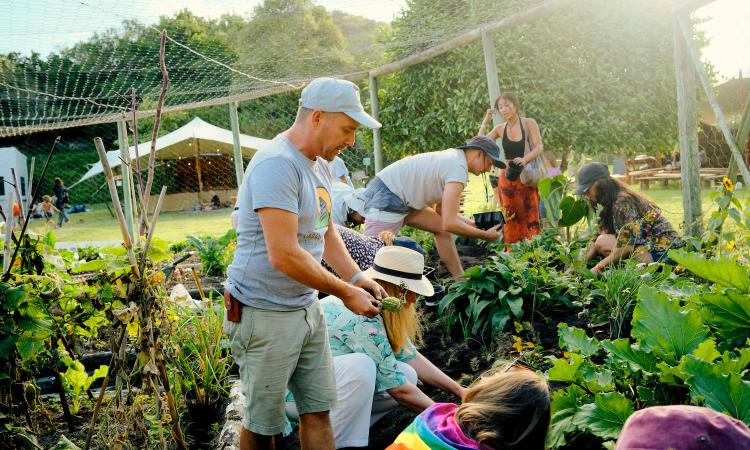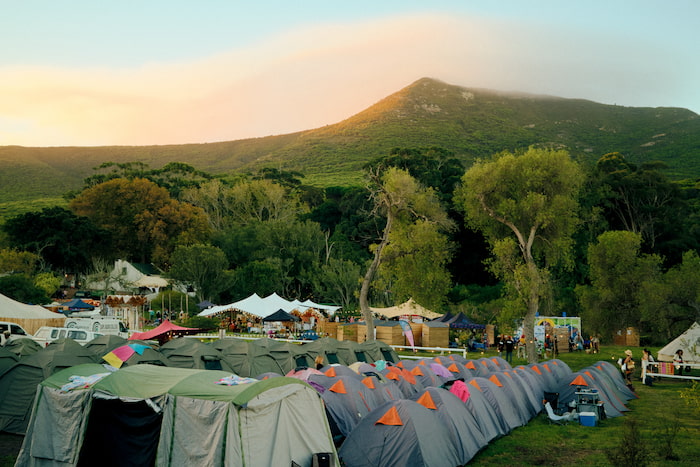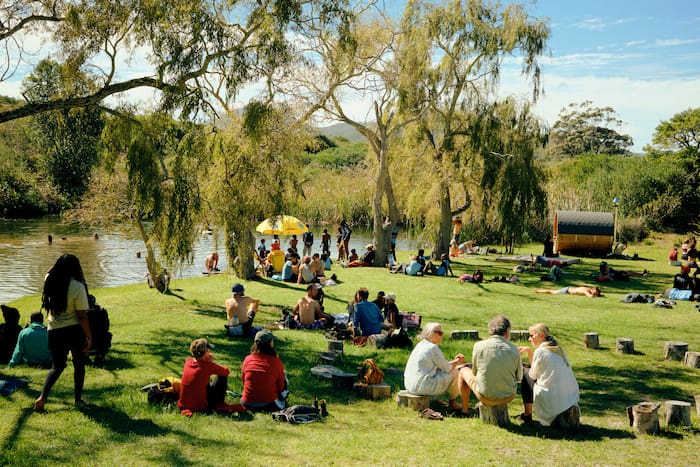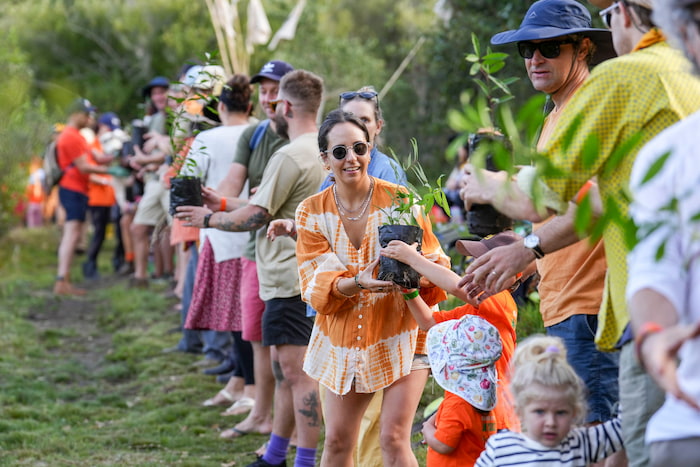How a South African Festival is Cultivating a Carbon-Negative Future

What if the answer to the triple planetary crisis — climate change, pollution, and biodiversity loss — came not from a boardroom, but a music festival? In Africa’s southernmost indigenous forests, we showed it’s possible.
At Reforest Fest 2025, Greenpop aimed to rewrite the rulebook on what climate action can look like. More than a weekend of music, culture and connection, this year’s instalment became a living case study in building a sustainable festival model—one that doesn’t just minimise harm but actively contributes to ecosystem restoration and a green economic transition.
Our Ethos: From Awareness to Action
At Greenpop, a Cape Town-based environmental non-profit, we believe in educating for action – getting people active, not anxious about the planet. Our mission is to counter eco-anxiety by sparking enthusiasm and building capacity for long-term environmental stewardship. Reforest Fest is a living expression of that ethos.
Over the Easter weekend, more than 1,100 attendees didn’t just talk about the climate crisis — they took direct action. The result? A roadmap for how festivals, when intentionally designed, can become forces for ecological restoration and local economic acceleration.
For the first time, we conducted a full environmental audit, meticulously tracking every emission from transport and food to energy and materials. The newly released Impact Report for 2025 isn't just a summary of waste collection; it's a practical blueprint for community-led regeneration.
Here’s a closer look at how we translated intention into measurable impact.
Achieving a Carbon-Negative Footprint
Our audit revealed a total carbon footprint of 127 tonnes of CO₂-equivalent emissions. The decisive action, however, was the 5,021 indigenous trees planted by festival-goers. These are projected to sequester over 5000 tonnes of CO₂ over their lifetime, more than six times the festival's emissions. This long-term effect makes Reforest Fest not just carbon-neutral, but demonstrably carbon-negative.
These trees are part of the Uilenkraal Forest Restoration Project, a collaborative effort we support to restore and conserve Africa's southernmost indigenous forests. To date, this project has seen 145,645 trees planted and has reforested over 12 hectares of land. The benefits extend beyond carbon capture, yielding enhanced biodiversity, improved soil health, and better water regulation.

Viewing Waste as a Resource
We embraced a circular economy model, treating waste not as an endpoint but as a resource. This was made possible through a stringent “sorting at source” system, which ensured 1,704 kg of waste was diverted from landfill. Complementing these efforts was a focus on water-wise sanitation. A key innovation was our humanure system: composting toilets that save an estimated 6 litres of water per flush while producing 2,500 kg of natural fertiliser.
Furthermore, a strict “no single-use packaging” policy for vendors, combined with reusable glass jars and kombucha on tap, reduced waste by another 500 kg and avoided an additional tonne of CO₂ emissions.
Championing Conscious Consumption
We championed conscious food choices by serving 8,300 plant-based meals, preventing an estimated 12,100 kg of greenhouse gas emissions. We also bolstered the local economy by sourcing 80% of our produce from 15 farms within 50 kilometres of the festival, 20% of which were organic. Water conservation was also a priority, with timed showers and biodegradable soaps available to attendees.
Minimising Our Energy Footprint
We kept our energy use low by minimising our grid connection, thereby avoiding the need for diesel generators. Most lighting was solar-powered through a partnership with Litehouse, while unplugged workshops and acoustic sets further reduced energy demands.
With an energy use of just 0.36 kWh per person per day—well below Cape Town’s average—the festival showcased a practical approach to powering large events in harmony with the environment.

Sharing Knowledge to Empower Action
Through new activations like the Ubuntu Stage and Restoration Tent, we connected our local celebration with the global green movement. The Ubuntu Stage centred experiences—from ancestral food systems to land-based storytelling. The Restoration Tent, guided by the theme “Think Global, Act Local,” brought international partners like the UN Convention to Combat Desertification (UNCCD) and the G20 Global Land Initiative into dialogue with grassroots action, affirming a vital truth: global frameworks only succeed when rooted in local knowledge.
Across more than 70 workshops, participants gained sustainable skills—from composting to low-waste living—underscoring our belief that education must precede action.
Centring the Community
Reforest Fest’s impact became a heartbeat for the Overstrand region. An estimated R1.5 million flowed into the local economy through staffing, vendors, and suppliers.
Beyond the numbers, this represents a real human impact. We employed 193 people directly at the event, supported by 77 volunteers and 25 pre-event staff. Sourcing 80% of food locally didn’t just reduce transport emissions—it reinforced local livelihoods and knit the festival into the life of the region.
Our core belief is that restoration is not just ecological—it’s relational. This interconnected approach is what makes the Reforest Fest model so powerful. The festival isn’t just a one-off event; it’s a living blueprint for embedding sustainability in community and collective action.

Building a Blueprint for a Greener Future
Sustainability is a dynamic journey for us. We are now furthering our partnership with the UNCCD and the G20 Global Land Initiative to develop toolkits that help other organisations adopt sustainable event practices. Reforest Fest has evolved from a single event into a replicable framework for festivals that restore ecosystems and empower communities.
Through radical accountability, collective effort, and a deep commitment to community, we cultivated hope and lasting change. Let Reforest Fest serve as a reminder that the most effective solutions are often the ones that bring people together, with their hands in the soil, to build a greener, more resilient planet. And we’ll be aiming even higher when Reforest Fest returns in 2026.
Written by: Ephraim Ozabor, Senior Campaign Manager, PR & Media Relations at Greenpop
Images provided by Christian Khayó: @this.is.khayo
Learn more about Greenpop – Join the Treevolution!
Website: www.greenpop.org
Facebook: www.facebook.com/Greenpop
Instagram: @GreenpopSA
LinkedIn: @Greenpop
YouTube: www.youtube.com/@GreenpopTreevolution
Email:

